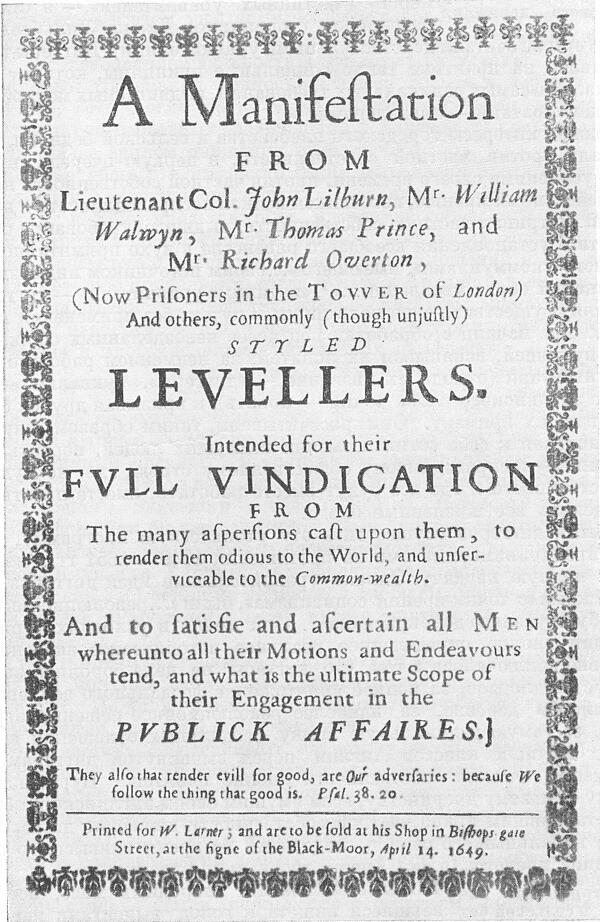The Levellers
The Levellers were a political movement during the English Civil War, made up of radicals who challenged Parliament at the end of the First English Civil War. From July 1647 to November 1647, the Levellers proposed radical policies that emphasised popular sovereignty. For example, they proposed religious tolerance, extended suffrage and equality before the law.
The Levellers' reform proposals developed as a result of the growing dissent within the New Model Army in the wake of the First Civil War. However, Parliament challenged the Levellers’ demands for more radical reforms, leading the Levellers to seek support from the army’s rank and file. Many soldiers welcomed the Levellers’ ideas.
The Levellers gave their demands to Parliament during the summer of 1647. There called for the dissolution of the Long Parliament and the election of a new assembly. They were prepared to use the force of the army if the Long Parliament refused to be voluntarily dissolved.

However, the rank and file were not as radical at the Levellers had hoped and the army’s senior commanders marched to London in support for the Long Parliament.
Wildman presented a pamphlet, ‘The Case of the Army Truly Stated’ to Sir Thomas Fairfax in October 1647. The document was extremely radical. Not only did it call for radical political reform, but it said that it was the people - not the politicians or the elite - that held all the power.
Wildman believed in a more democratic electoral system - he thought elections to Parliament should be held every two years to make MPs more responsive. MPs’ powers were also limited by a set of political liberties and rights, including religious toleration. The plan, which was later renamed ‘Agreement of the People, had the potential to completely change Stuart society - giving the people more power and rights than they could ever have dreamed of.
Though most people in Long Parliament rejected these ideas outright, a meeting was organised at Putney Church to discuss their demands. The levellers put forward their demands for extended suffrage, but the meeting was abruptly ended when Charles I escaped from prison on 11 November.
Parliament used this event as an excuse to discipline the rank and file army, where it was clear that dissenters were beginning to spark unrest.
Following the failed debate, some dissenters in the army led a mutiny, but Cromwell quickly put a stop to it by arresting and executing the mutineers. Without any influence in the army, the Leveller’s short-lived influence came to an end.
See also: Agreement of the People
MLA Citation/Reference
"The Levellers". HistoryLearning.com. 2025. Web.
